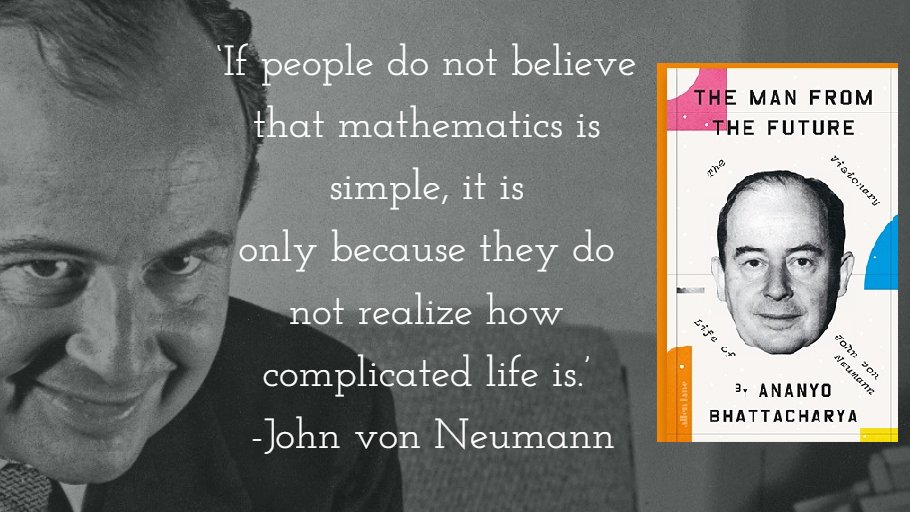
Chief science writer @London_Inst. 'The Man from the Future', on the unparalleled influence of John von Neumann, available everywhere. For my substack see link.
How to get URL link on X (Twitter) App


 First, let's deal briefly with some of the other figures and machines oft cited in this debate. Important to note that all those below had key roles in the development of computing machines but none could be credited with sparking the development of the modern computer.
First, let's deal briefly with some of the other figures and machines oft cited in this debate. Important to note that all those below had key roles in the development of computing machines but none could be credited with sparking the development of the modern computer.


https://twitter.com/C4COMPUTATION/status/1518032448067616771His lectures on self-replicating automata delivered at the 1948 Hixon Symposium on Cerebral Mechanisms


 Hermann flourished at Göttingen despite the sexism of the faculty. Just a few years before she began her PhD, historians and linguists had tried to block Noether’s own appointment, forcing Hilbert to intervene on her behalf. 2/
Hermann flourished at Göttingen despite the sexism of the faculty. Just a few years before she began her PhD, historians and linguists had tried to block Noether’s own appointment, forcing Hilbert to intervene on her behalf. 2/

 Born in Budapest in 1903, by the time he died von Neumann was as famous in the USA as Einstein—and considered far sharper. While Einstein’s most famous work was done in Europe, von Neumann’s life in America was richly productive—and influential 2/
Born in Budapest in 1903, by the time he died von Neumann was as famous in the USA as Einstein—and considered far sharper. While Einstein’s most famous work was done in Europe, von Neumann’s life in America was richly productive—and influential 2/ 

 Klári was born 110 years ago to a wealthy Jewish family in sparkling Belle Époque Budapest. The family hosted riotous parties where businessmen and politicians rubbed shoulders with artists and writers. She would rekindle the spirit of those gatherings in America years later 2/
Klári was born 110 years ago to a wealthy Jewish family in sparkling Belle Époque Budapest. The family hosted riotous parties where businessmen and politicians rubbed shoulders with artists and writers. She would rekindle the spirit of those gatherings in America years later 2/ 




https://twitter.com/PhysicsWorld/status/1313172637825355776Siegbahn was a physics Nobelist, very influential in the higher echelons of Swedish science and, apparently, a notorious misogynist (see Ruth Lewin Sime's ace biog) who was resentful about Meitner's presence.